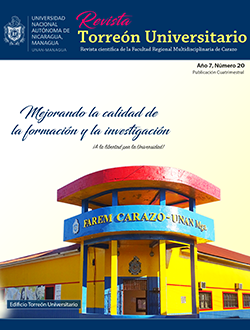The evaluation in the Learning process
Keywords:
evaluation, teaching-learning, techniques, instrumentsAbstract
Most definitions about evaluation are framed in a normative pattern, as a formal requirement with little or no pedagogical value that does not arise with a constructive sense, as an option to review the teaching-learning process in order to value them and take decisions that contribute to improving this process.
The present essay is based on a documentary inquiry and the author's own experience that allows to corroborate that, by taking the evaluation as a reflection tool of the learning process, will allow the student to actively and consciously review and improve his or her own process of learning.
Therefore, the evaluation should help to raise the quality of learning and increase the performance of students, that is why the teacher should select techniques and assessment tools that contribute to ensure the permanent construction of learning.
It is also an instrument that provides feedback to both the teacher and the student, which allows changing aspects related to planning and, especially, the learning process. In a few words, evaluation makes sense when the educational process improves.
In short, a successful evaluation process is largely to the extent that its results are available at the right time, to influence decision making.
Downloads
Downloads
Published
Issue
Section
License
The authors who publish in this journal agree to the following terms.
- The author or authors of the articles, essays or research grant the National Autonomous University of Nicaragua, Managua (UNAN-Managua) the editing rights (copyright) of the submitted work, therefore the University has the exclusive right to publish the article for the entire copyright period.
- These copyrights/authors authorize Torreón Universitario Magazine and the University to edit and disseminate/publish the article in said Magazine, including printed and electronic reproduction, storage, retrieval and any other type of publication, and sources of secondary information as services. of summaries and databases, they also empower it to protect the article against unauthorized use for dissemination by printed or electronic media (PDF, HTML, EPUB, XML or others).
License for use of content
The magazine uses the Creative Commons Attribution-NonCommercial-NoDerivs 4.0 International License.
Under this statement:

This journal is licensed under a Creative Commons Attribution-NonCommercial-NoDerivatives 4.0 International License. It can be copied, distributed and transmitted publicly as long as the author and source are cited (Revista Torreón Universitario), it should not be modified or used for any commercial purpose. The full license can be found at http://creativecommons.org/licenses/by-nc-nd/4.0/.



